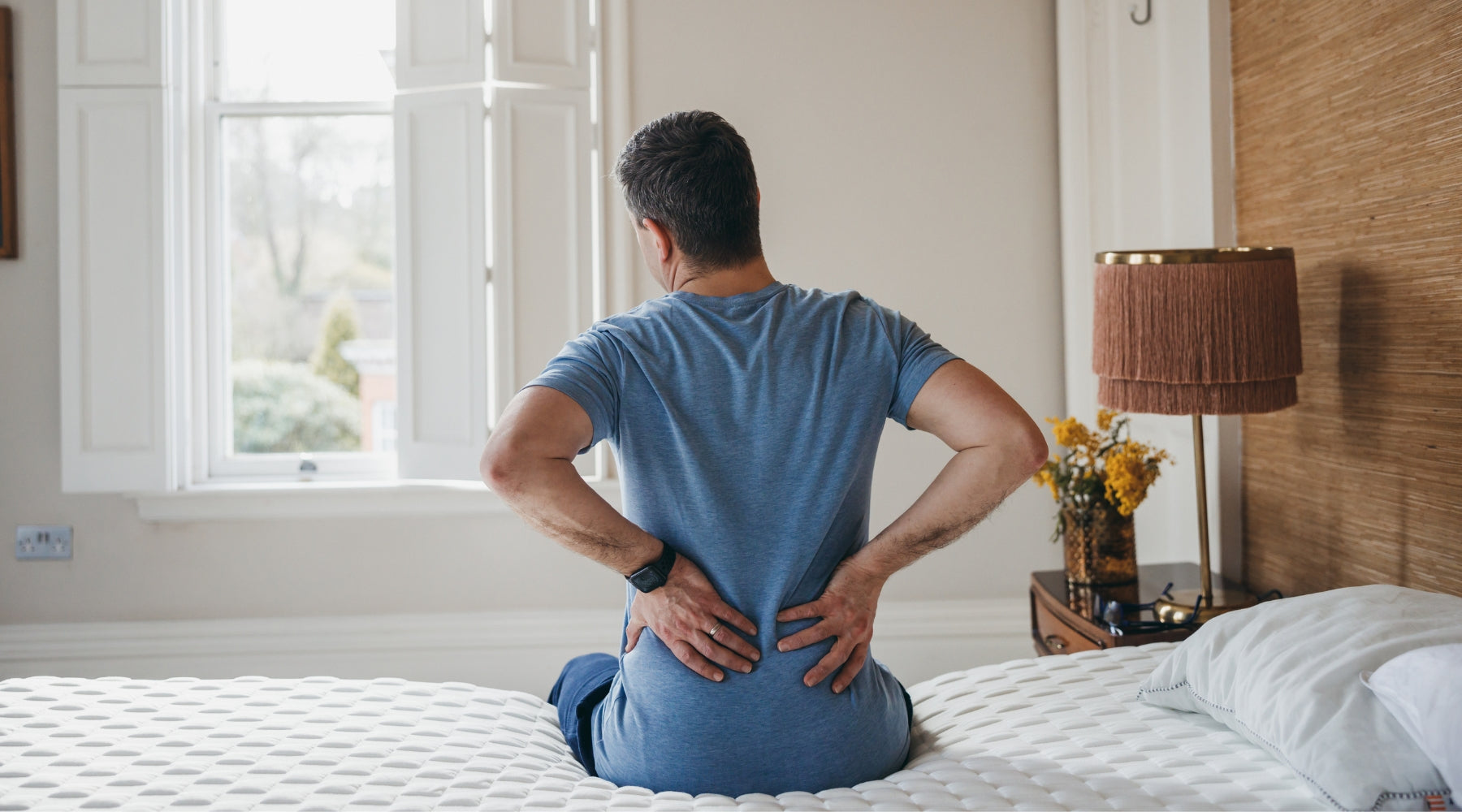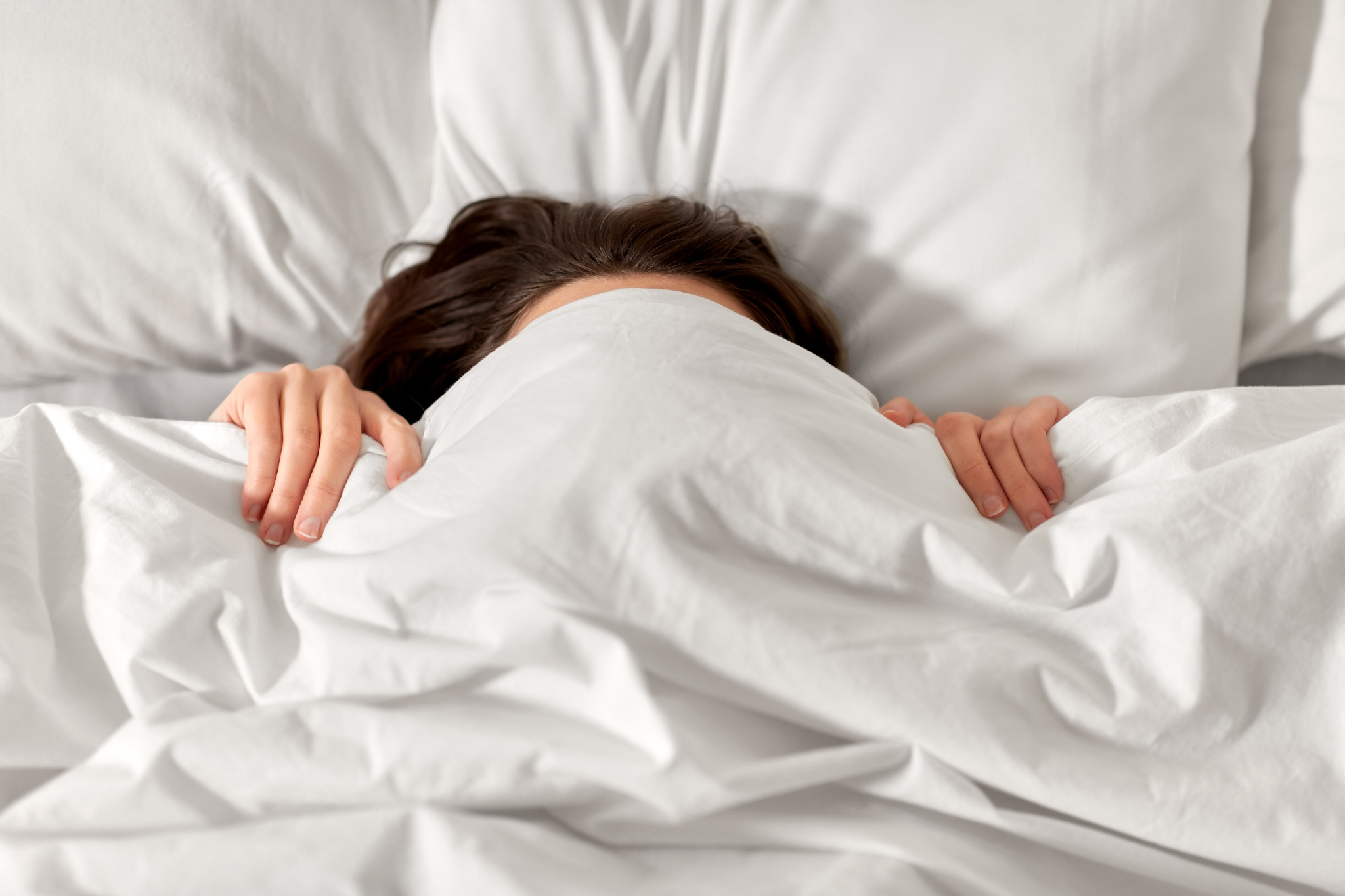It probably goes without saying that the majority of us are aware of the benefits of sleep. Benefits of sleep such as improved memory, curbing inflammation, better attentiveness, reduced stress and improved immune response are just a few of the much talked about advantages.
However, many may not realise that we can be limiting these benefits of sleep by not considering a crucial factor in achieving good sleep and that is sleep posture.
Understanding the importance of sleep posture
Sleep posture is a massively overlooked, yet critical factor in achieving a healthy body and mind. We spend so much of our time in bed, actually what’s happening to our spines is often unconsidered – unlike when we sit or stand.
Sleep posture is actually a really simple, yet effective intervention in which we can easily control. Sleep posture at its core concerns itself with two things;
- The surface you sleep on
- The position you sleep in
The surface you sleep on
Pillow

To understand how your pillow may be affecting your sleep posture we first need to apprehend that there is no one-size-fits-all pillow.
Take for example going shopping for shoes with a friend who’s much taller than you, would you consider buying the same size shoe? They just wouldn’t fit.
So with that logic why would you purchase the same size pillow?
By using the correct pillow size you will keep your head supported and your neck nice and straight.
It’s really important that your pillow fills the space between your earlobe and the tip of your shoulder and is not too soft otherwise this encourages shoulder rotation causing you to roll forwards towards your stomach – which leads to poor sleep posture.
Mattress

Supporting your posture at night allows you to fight gravity and maintain a good spinal alignment. We are continuously fighting against gravity. If your body sinks into your mattress, you cannot control your posture.
That’s why it’s significant to find a mattress that provides comfort and pressure relief, yet firm to ensure amazing postural support. Purchase a surface that is soft enough to provide adequate pressure relief yet firm enough to provide postural management.
It’s for this reason that we don’t recommend memory foam mattresses. If we’re sitting in an office or driving all day why would we want to remember our day time postures when we sleep.
Nighttime should be a time to fight our daytime postures. You’re already asleep so why not do it well?
The position you sleep in

For too long, sleep has just been considered something we all have to do to live. What’s never been addressed up until now is how to impact sleep quality.
Sleep posture is impacted by the position you go to sleep, your body mass, gravity and your sleep surface. A good benchmark in understanding if you could optimise your sleep posture is whether you are waking with a stiff neck or aching back.
There is a linear relationship with this and your sleep posture. Don’t worry you’re not alone. In fact 82% of Brits are sleeping in the wrong position for good posture. According to a YouGov poll a survey of 2,000 UK adults found only 18% of respondents slept in The Dreamer position, (semi-foetal side lying) which is our recommended sleep position due to it putting least tension on your spine.
We’ve identified the Dreamer position as the optimal position for sleep posture as it offers the best support for the head, neck, spine and hips, allowing the body to rest in neutral alignment – resulting in no twists or bends through the night.
By adopting this position you will benefit from reduced back and neck pain, through lessened shoulder tension and improved circulation, all the way to decreased snoring and improved lung capacity.
Worth a try, wouldn’t you say?!

With regards to sleep posture, our focus is on a very specific intervention that anyone can make. This is the position that you can sleep in, and if it is aiding your spine, or having a negative impact.
Changing this could be the easiest way to improve your general health as well as posture. Marrying this up with the correct lying surface will also benefit your sleep posture, allowing your muscles to get a chance to properly relax and recover through the night.






4 Steps To Stop Stomach Sleeping
How to optimise sleeping on your back